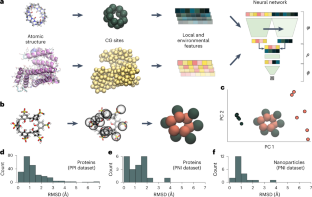2023-06-06 ミシガン大学

◆ミシガン大学の研究チームは、ゼブラフィッシュを用いて、細胞内のミトコンドリアのループが細胞が分化の道を引き返す可能性を示唆する結果を発見した。これは細胞の柔軟性や再生医学、がん治療に重要な情報を提供する可能性がある。ミトコンドリアは細胞内のエネルギー生産に関与しており、その役割は従来よりも重要であることが明らかになった。
<関連情報>
- https://news.umich.edu/finding-clues-about-the-process-of-cell-plasticity/
- https://www.pnas.org/doi/10.1073/pnas.2216310120
活性酸素シグナルによるミトコンドリアSgk1発現は上皮細胞の再生を制御する ROS signaling–induced mitochondrial Sgk1 expression regulates epithelial cell renewal
Yingxiang Li, Chengdong Liu, Luke Rolling, Veronica Sikora, Zhimin Chen, Jack Gurwin, Caroline Barabell, Jiandie Lin, and Cunming Duan
Proceedings of the National Academy of Sciences Published:June 5, 2023
DOI:https://doi.org/10.1073/pnas.2216310120
Significance
Cell renewal is critical for tissue homeostasis and regeneration. Using a zebrafish model, we show that an increase in mitochondrial membrane potential and TCA cycle/OXPHOS are required and sufficient for the cell cycle reentry. The elevated mitochondrial activity leads to increased ATP synthesis and ROS production. Elevated mitochondrial ROS induces the mitochondrial expression of Sgk1. Sgk1 alters cell fate by modulating F1Fo-ATP synthase phosphorylation state and ATP synthesis. This signaling loop also mediates mitochondrial metabolism–dependent S phase entry of human breast cancer cells, suggesting that it is an evolutionarily conserved mechanism.
Abstract
Many types of differentiated cells can reenter the cell cycle upon injury or stress. The underlying mechanisms are still poorly understood. Here, we investigated how quiescent cells are reactivated using a zebrafish model, in which a population of differentiated epithelial cells are reactivated under a physiological context. A robust and sustained increase in mitochondrial membrane potential was observed in the reactivated cells. Genetic and pharmacological perturbations show that elevated mitochondrial metabolism and ATP synthesis are critical for cell reactivation. Further analyses showed that elevated mitochondrial metabolism increases mitochondrial ROS levels, which induces Sgk1 expression in the mitochondria. Genetic deletion and inhibition of Sgk1 in zebrafish abolished epithelial cell reactivation. Similarly, ROS-dependent mitochondrial expression of SGK1 promotes S phase entry in human breast cancer cells. Mechanistically, SGK1 coordinates mitochondrial activity with ATP synthesis by phosphorylating F1Fo-ATP synthase. These findings suggest a conserved intramitochondrial signaling loop regulating epithelial cell renewal.


